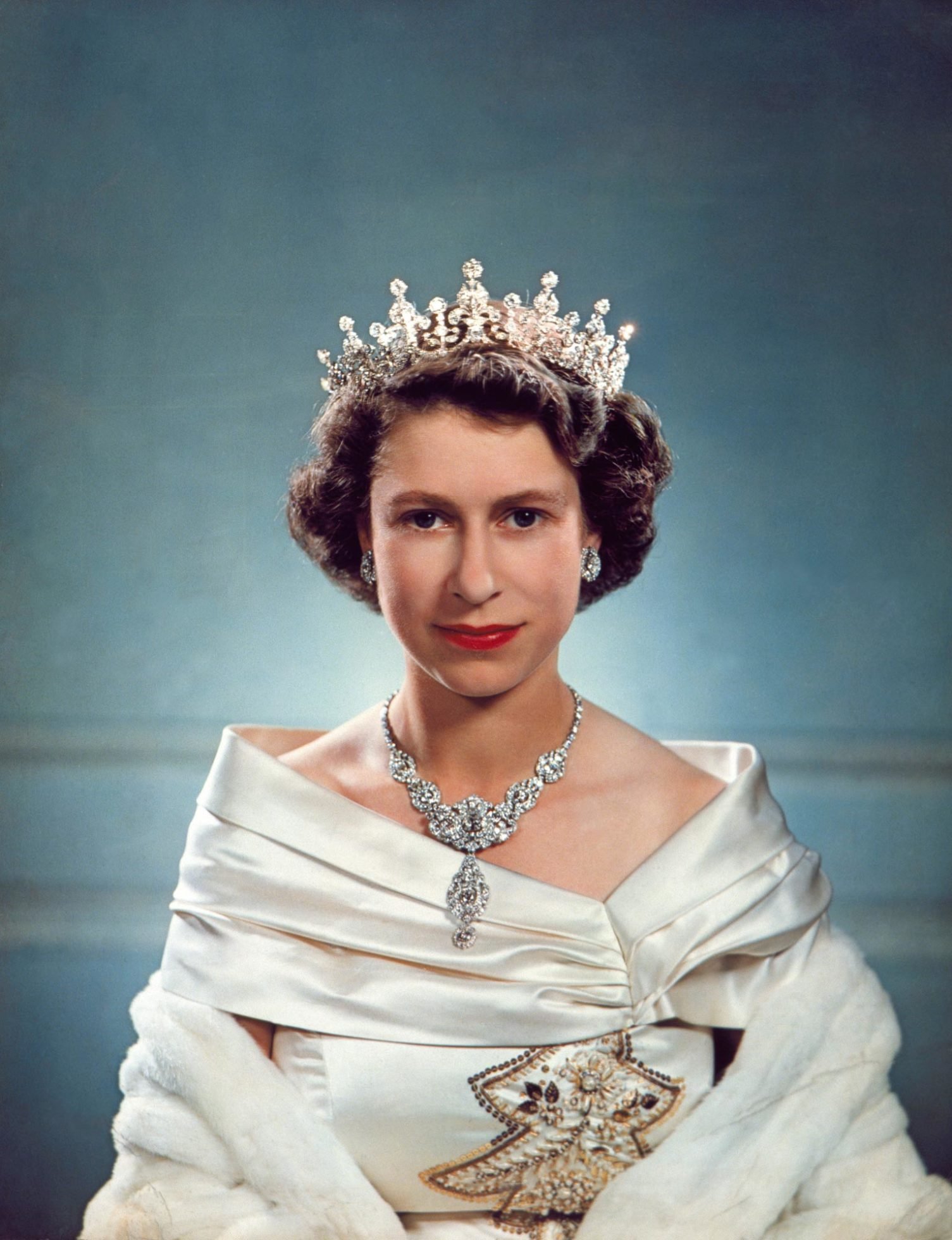“She is past-mistress of nothingness… a conveniently empty vessel into which Helen Mirren can imagine any amount of knowingness and intelligence.” So Guardian journalist Polly Toynbee once described the Queen. If only we “put an end to this royal infantilizing of a nation,” she added, the “sunlight of reform” would come out and Britain could take its place among the world’s republics.
I won’t bother to defend constitutional monarchy, because it’s looking pretty good these days, compared with the alternatives. Who wants to live in a tyrannous monarchy like, say, Sweden or Denmark or Norway when you can enjoy the delights of republics like Venezuela, Cameroon or North Korea?
But Ms. Toynbee put her finger on something.
“Nothingness.”
All that ribbon-cutting and unveiling of plaques; all those visits to homes for the disabled; all those short appreciative speeches on small-town factory floors; all that banter with excited crowds standing in the rain. Seventy years of it. It’s been estimated that over the years the Queen has shaken hands with about 750,000 people. Is that nothing?
My parents were English immigrants to Canada who gathered their boys every year around a black and white TV to listen to the Queen’s Christmas broadcasts. It was a habit I never kicked. I still impose it on my long-suffering children and mystified American dinner guests.
These broadcasts typically made two points. They made clear that her whole life was animated by her faith, and, as she put it in 2016, “Christ’s example helps me see the value of doing small things with great love.”
It “helps me see,” she said, bringing to mind C.S. Lewis’s famous dictum: “I believe in Christianity as I believe that the sun has risen: not only because I see it, but because by it I see everything else.”
Her messages were simple but behind them was a cosmic, sacramental vision, and one woman’s example of how to make the supernatural love of God a reality in the lives of others. After all, the message of Christmas is that God became a tiny baby to a poor family in an obscure place to save us. “Small” she was saying, is not “next to nothing.” Small is next to everything. Small is where you find God.
Perhaps it was because she saw so many political leaders come and go, and an empire slip gradually away from under her, that she understood the vanity of big things. “God sent into the world,” she said, “neither a philosopher or a general but a savior with the power to forgive.”
At her coronation in 1953 it was remarked how awestruck she was by the religious aspects of the ceremony—particularly the part which took place, off camera, and out of sight of the congregation, underneath a golden canopy held up by four Knights of the Garter. Giles Fraser describes what took place this way:
“the Queen was disrobed of her crimson cloak and her jewelry removed. Here she sat in a simple white dress on a wooden throne to be anointed by the Archbishop of Canterbury with holy oil, a mixture of ambergris, civet, orange flowers, roses, jasmine, cinnamon, musk and benzoin, ladled from a 12th century spoon. This is when the choir sings ‘Zadok the Priest’, its words extracted from the first Book of Kings.”
Kings and Queens are not elected. They don’t apply for the job. Their lives are sacred, chosen by God.
Her Christmas messages reminded us that our lives are just as sacred, and just as chosen. They are to be spent in the service of him “whose service is perfect freedom.”
Ms. Toynbee called her an “empty vessel.” True enough. It’s an ancient vision of the Hebrew Bible. God is the potter; we are the clay. We are called to get our egos under control and make space for God in our lives.
Ms. Toynbee objected to the fact that people projected on to her since she was so reticent about her political opinions. But again her silence was not “nothing” but something which created a space for others to speak. How better to embody a nation and to be a force of unity?
The Queen hated to disappoint. Her biographer recalls how in 1982, a disturbed man appeared in her bedroom threatening to slit his wrists with an ashtray. She was alone with him for some time before she was rescued. You would have thought she might have taken the day off. But no, later that morning she turned up at her 11 a.m. investiture. People had come with their proud families to receive their honors and to meet her, and she didn’t want to ruin their day.
Already a tiny person, she shrank in the last year as age took its toll. But even as she diminished, and grew weak, she somehow increased in moral stature; if anything she grew more a symbol of unity, more authentic, more beloved.
Two days before she died, she dragged herself up out of bed, dressed for the occasion and, propped up with a cane, received her last Prime Minister with a with a broad, welcoming smile. She didn’t want to disappoint.
The first Queen Elizabeth, so vaunted in history for her greatness, was terrified of death, and when she was dying crouched on the floor, afraid to go to bed one last time, for fear of meeting her maker.
The second Elizabeth, our Elizabeth, slipped away peacefully, without fanfare, in the reasonable, religious, and holy hope of the resurrection to eternal life. She was the Queen of small things done with great love, a Gloriana for the ages.
May she rest in peace.
